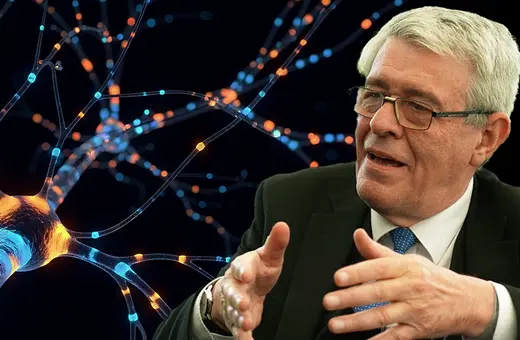Here’s a thought experiment. Suppose you are an aid agency providing food for children in a refugee camp. You have limited resources and could either feed all the hungry children inadequately, in which case they will soon starve, or feed a few adequately so they will survive but the others will all die. It’s a moral choice between equity and efficiency. What do you do – especially if your head is in an fMRI brain imager when you are confronted with the dilemma? According to the authors of this neuroscientific quandary, who claim to be measuring the brain correlates of distributive justice, one brain region, the insula, encodes inequity while the putamen region encodes efficiency.[i]
This typifies the beliefs of the new discipline of neuroethics that absolute moral values are inscribed in the brain. But how did we get here? For as long as oral traditions or written records have been available, moral injunctions have been laid down as representing the word of God, the wisdom of philosophers or the command of kings. Think of the Bible’s Ten Commandments, the teachings of Confucius or Ashoka, or the Code of Hammurabi. Precepts, rules of conduct and penalties for disobedience follow, engraved on tablets and enshrined in ancient texts, interpreted and reinterpreted by scholars and theologians as central pillars of society.
No longer. Ever since Darwin, but with increasing insistence over the last half century, the life sciences of evolution, genetics and neuroscience have claimed their rights as arbiters of morality. A key moment came in 1975 with the publication of EO Wilson’s Sociobiology. Wilson, a Harvard-based biologist, defined sociobiology as ‘the systematic study of all social behaviour,’ a branch of evolutionary biology encompassing all human societies. The book offered a biological - genetic and evolutionary - explanation of human cultural manifestations such as religion, ethics, tribalism, warfare, genocide, cooperation, competition, conformity and many others. Wilson argued that sociobiology would provide the basis for a complete code of evolution-based ethics. The book’s apparent justification of the inevitability of racism, sexism and class sparked a major controversy, spilling from academia into political activism, both from the radical left[ii] and the neo-Nazi right[iii].
By the 1990s, sociobiology had been ‘rebranded’[iv] as evolutionary psychology (EP). The claim was now that a universal ‘human nature’ had been genetically fixed at the very origins of Homo sapiens in the Pleistocene and there had not been enough evolutionary time for change to occur; thus we modern humans still have ‘stone age minds’ and a residual stone age morality not dissimilar from Wilson’s earlier list. EP was called upon to ‘explain’ patriarchy, nepotism, male preference for sex with younger women and young womens’ for older, richer men, even rape and, allegedly, stepfathers killing their stepchildren. Its adherents argued firmly that ‘explain’ did not mean justify, it was merely that this was the way evolution had made us behave. It was ‘Mother Nature’ who was sexist, claimed one prominent evolutionary psychologist, ‘so don’t blame her sons.’[v]
___
"Brain activity does not cause moral judgement."
___
There is, of course, an interesting paradox here. EP’s protagonists simultaneously claim to be able to separate fact from value and to argue that, as a fact, our values are laid down in our genetics. To its critics, EP’s view of human nature merely projected back into the Pleistocene the lifestyle and values of middle-class Californian family life in the 1950s. It came to be known as Flintstone morality, even though not much can be inferred about the social life of our Pleistocene ancestors from the few skulls, shards of bone and artefacts available.



















Join the conversation